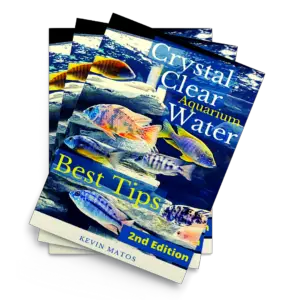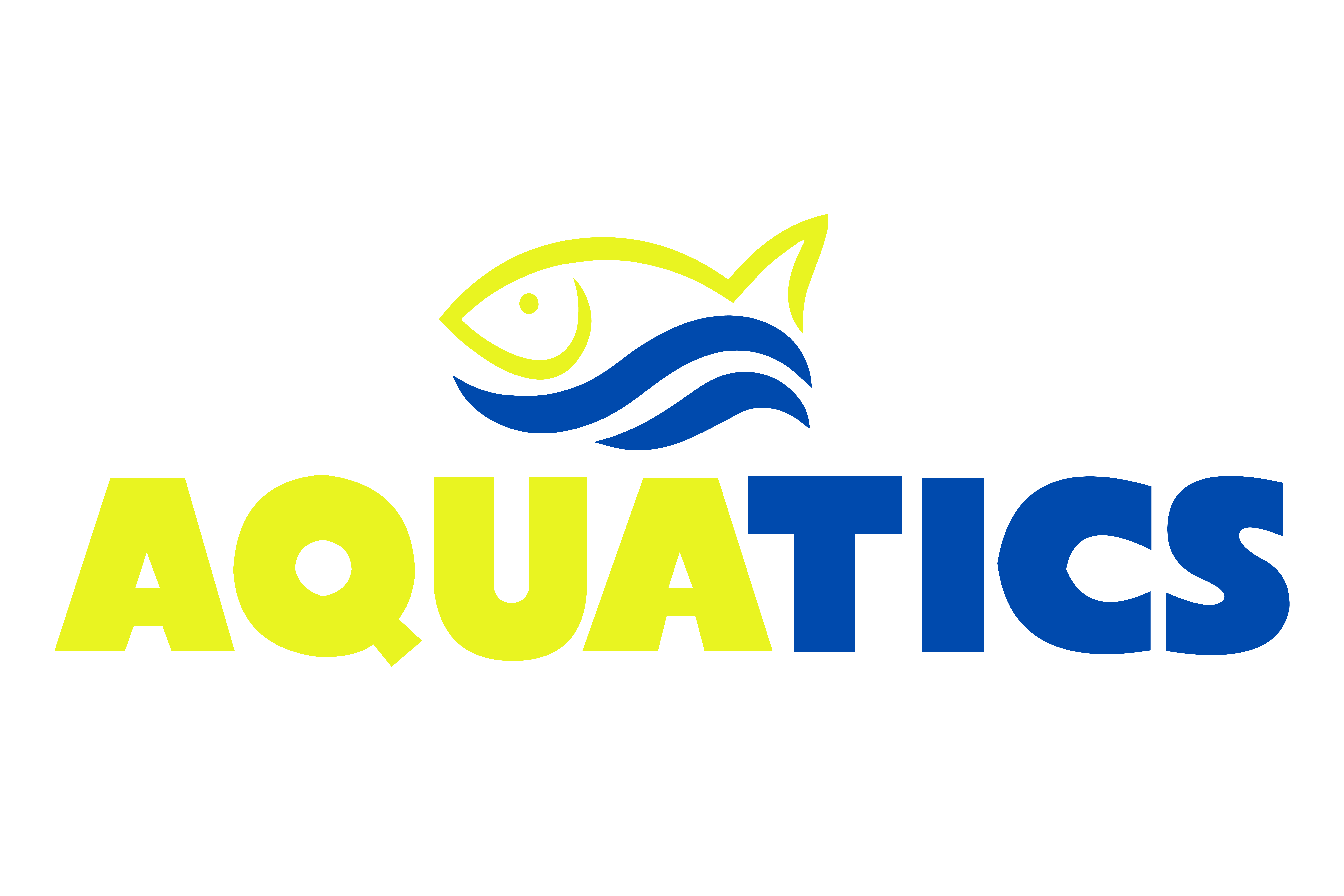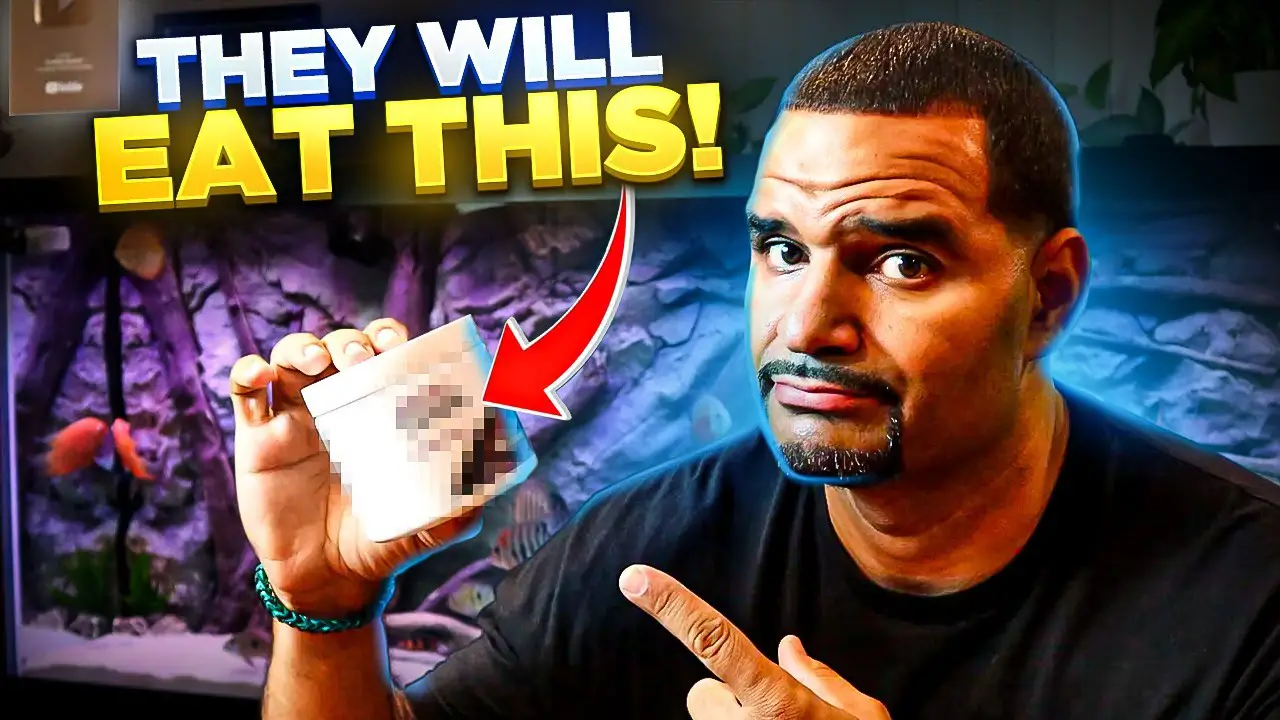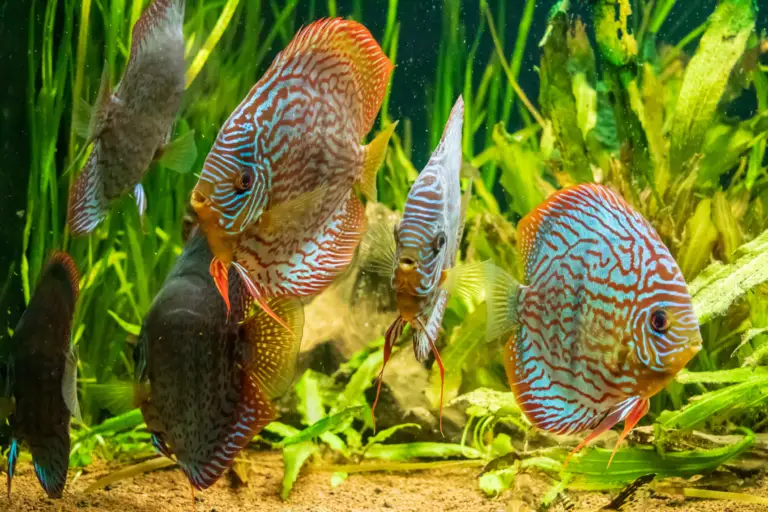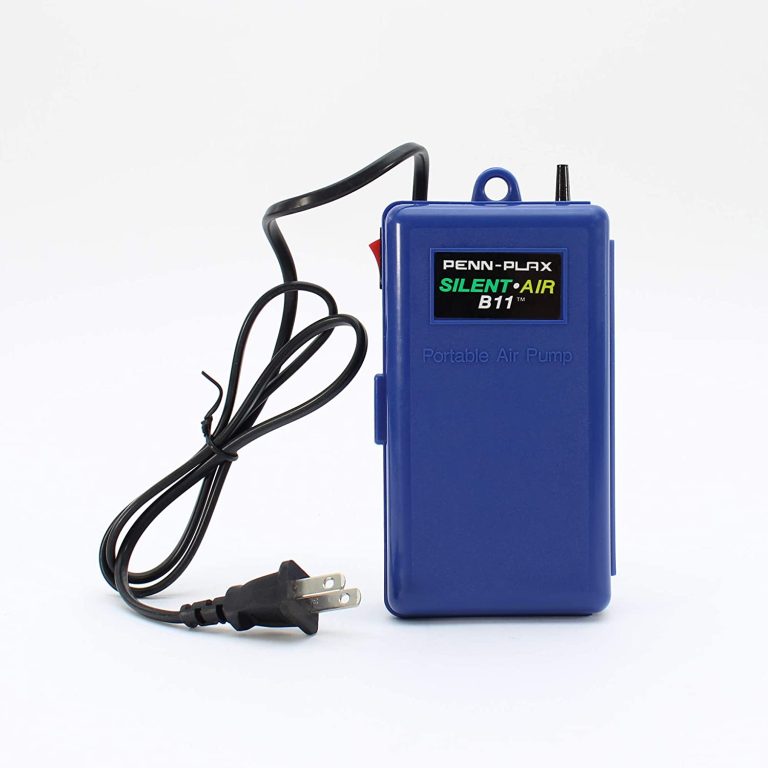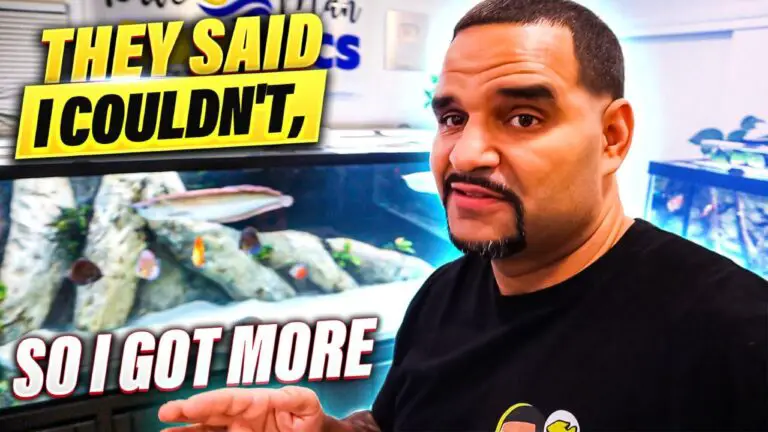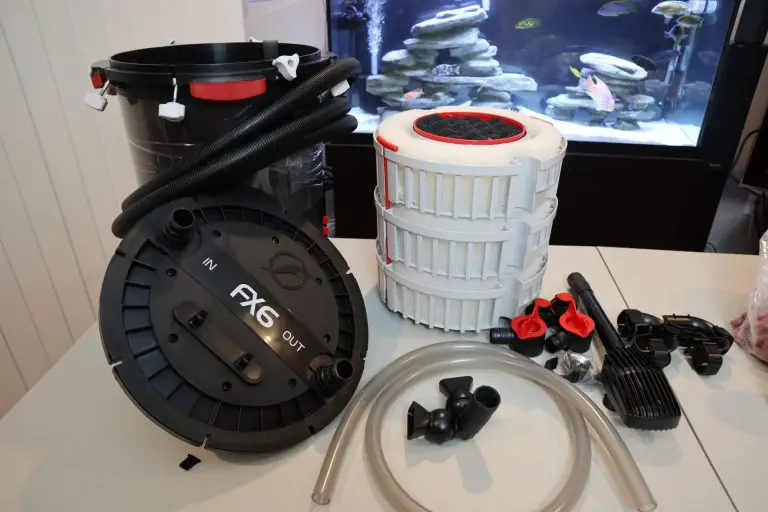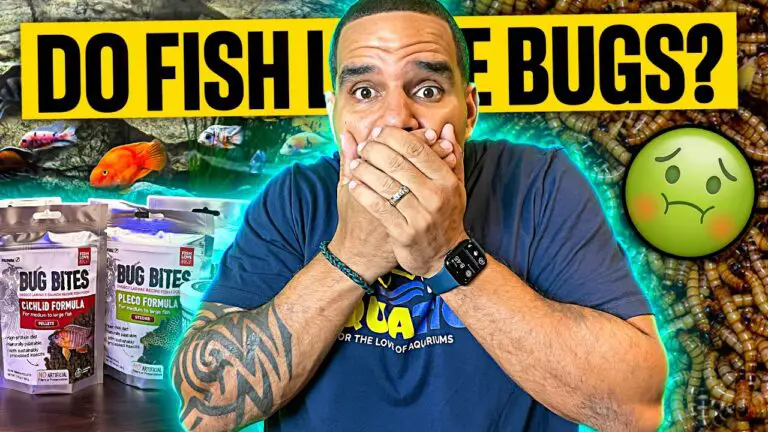Top 3 Discus Food to Get Them to Eat (Picky Eaters Edition)
We all know and love Discus fish, but… it’s sometimes hard to give Discus food as they are notoriously picky eaters!
All we want for our Discus is to live a happy and healthy life while dazzling us with their colors. However, their picky personalities prove to make that a challenge.
That’s why we tried and tested the following Discus food that they’ll actually eat (and keep your tank clean). Here are our top three foods that your Discus will love!
The Best Discus Food
Nutrition is an important factor in keeping Discus fish. The best food for them is that which has ingredients comparable to those found in the wild. Captive Discus fish need a varied diet of live foods, pellets, frozen foods, and fish flakes.
Being omnivores, Discus fish can eat both meat (insects, worms, crustaceans, shrimp pellets, tropical flakes) and plant (algae rounds, corn flakes) materials.
Top 3 Discus Food
We’ve got our tried and tested top three foods (try saying that three times in a row) that your Discus fish will love! Even the pickiest of them all will gobble these foods up.
#1 Live Blackworms
Not a single blackworm will survive in your Discus tank! Your Discus fish can also be fed bloodworms and white worms. All of these are considered as one the best foods for Discus fish in terms of nutrient content.
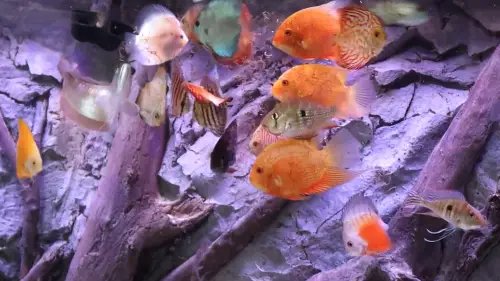
Benefits of Live Blackworms include:
- Natural: Just as in the wild, Discus fish get into attack mode when they see a worm wriggling in the water – replicating their wild counterparts. Even picky eaters can’t resist going after a fresh squiggly blackworm.
- Protein-Rich: Live blackworms are, of course, high in protein which helps with the overall health and growth of your Discus fish.
- Nutrient Dense: With live blackworms, they keep their nutritional benefits… alive. Frozen blackworms are evidently processed – losing some of their nutrients.
- Size: Blackworms are the perfect size for your Discus’ small pouty mouths. They’ll eat them up like a plate of spaghetti.
- “Clean”: Live blackworms won’t go bad in your tank. Some may get lucky and not get sucked up by your fish, but unlike frozen worms, they won’t contribute as much to the nitrogen cycle.
Note: Live worms may have parasites on them. We recommend going through this article that covers everything you need to know about blackworms. However, we haven’t had any parasite instances.
We’ve got a whole article on aquarium medications if you wish to read more.
#2 San Francisco Bay Brand Frozen Beefheart
San Francisco Bay Brand Frozen Beefheart is super delicious for Discus fish and is packed with protein. Now, Beefheart does not naturally occur in their diet, but, captive Discus fish do require a protein-rich supplement.
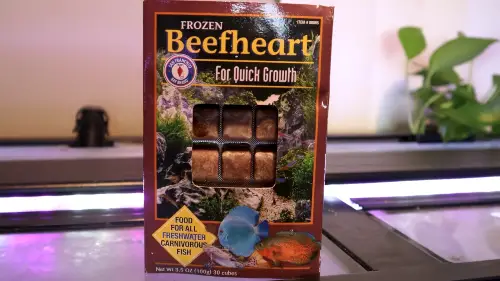
Benefits of San Francisco Bay Brand Frozen Beefheart include:
- Highly Nutritious: Beef heart provides essential nutrients that help maintain high energy levels and vigor in your fish.
- Protein Boost: Beef heart is an excellent source of protein. Discus fish, being an omnivore, need protein in their diet.
- Growth Support: Naturally, a protein-rich food source will promote proper growth.
- Easy to Feed: Coming in frozen cubes, you can easily feed your Discus by plopping in a cube. There’s no need to thaw it out and there’s no need to make a beef heart recipe from scratch!
Note: Too much beef heart can cause digestive problems and other ailments, but when provided in tiny, carefully controlled doses, it can be quite beneficial to the Discus fish.
#3 Seachem NutriDiet Cichlid Flakes
If you didn’t know already, Discus fish are part of the Cichlidae family. Here are five other things you might not know about Discus fish. So naturally, Seachem NutriDiet Cichlid Flakes can be fed to your Discus.
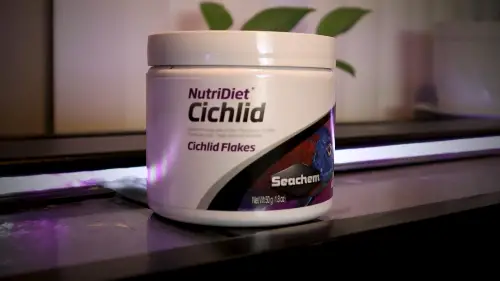
Benefits of Seachem NutriDiet Cichlid Flakes include:
- Appetite Stimulant: It is fortified with Seachem GarlicGuard. As we all know by now, garlic acts as an appetite stimulant.
- Superfood: It contains Chlorella Algae which is considered a superfood. Chlorella Algae is an exceptional source of a broad range of vitamins, amino acids, and other nutrients.
- Immunity Boost: It contains vitamin C which allows for a boost in immune function and collagen production. This can also help enhance your Discus’ colors.
- Digestive Health: It contains probiotics that help with the digestive system – promoting nutrient intake, reducing waste, and supporting the immune system.
Note: Of course, Seachem NutriDiet Discus Flakes are also an option that is much more specific to Discus.
Related Questions
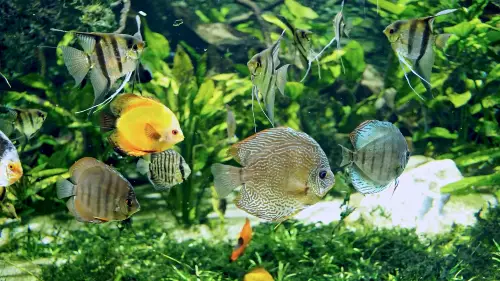
How to Feed Discus Fish?
For clarification, we do not feed all three foods, mentioned above, at the same time every day. What we do recommend is that you pick one Discus food, feed them it one time a day, and switch it up every other day. Rotation is key for picky eaters!
Here’s what we do:
- Live blackworms: once a week (a nice treat).
- Frozen beef heart: twice a week (a protein-rich supplement).
- Cichlid flakes: four times a week (the base food).
How Much Should I Feed My Discus?
When it comes to how much you should feed your Discus, feed them no more than 3% of their body weight. On average, adult Discus should be fed 2 – 3 times per day. Feed only what they can consume in 2 to 3 minutes. And of course, please follow the Discus food instructions carefully.
How Do Discus Fish Eat?
In the wild, Discus eat a considerable amount of plant material and detritus, but also forage along the bottom looking for worms and small crustaceans.
Given their flat body shape and small mouths, they can’t gorge on large food portions and require smaller amounts when it’s meal time.
Discus fish have grinders instead of teeth, which is why they have a unique eating process: 1) they capture the food into their tiny mouths, 2) they spit out the food, and 3) they recapture the same food.
Conclusion
In conclusion, your Discus fish diet is especially important in maintaining healthy, colorful Discus, so it is best not to stick with only one type of food; instead, change it on a regular basis or as needed.
We believe that these top three foods will have your picky eaters hungry for more while keeping your tank crystal clear. Try these foods out and see if your Discus fish love them (chances are they will).
If you want more Discus content, then head over to our YouTube channel, KaveMan Aquatics, to check our Discus fish playlist.
Crystal Clear Aquarium Water
If you want to keep a crystal clear aquarium, then click on the button below to learn more.
